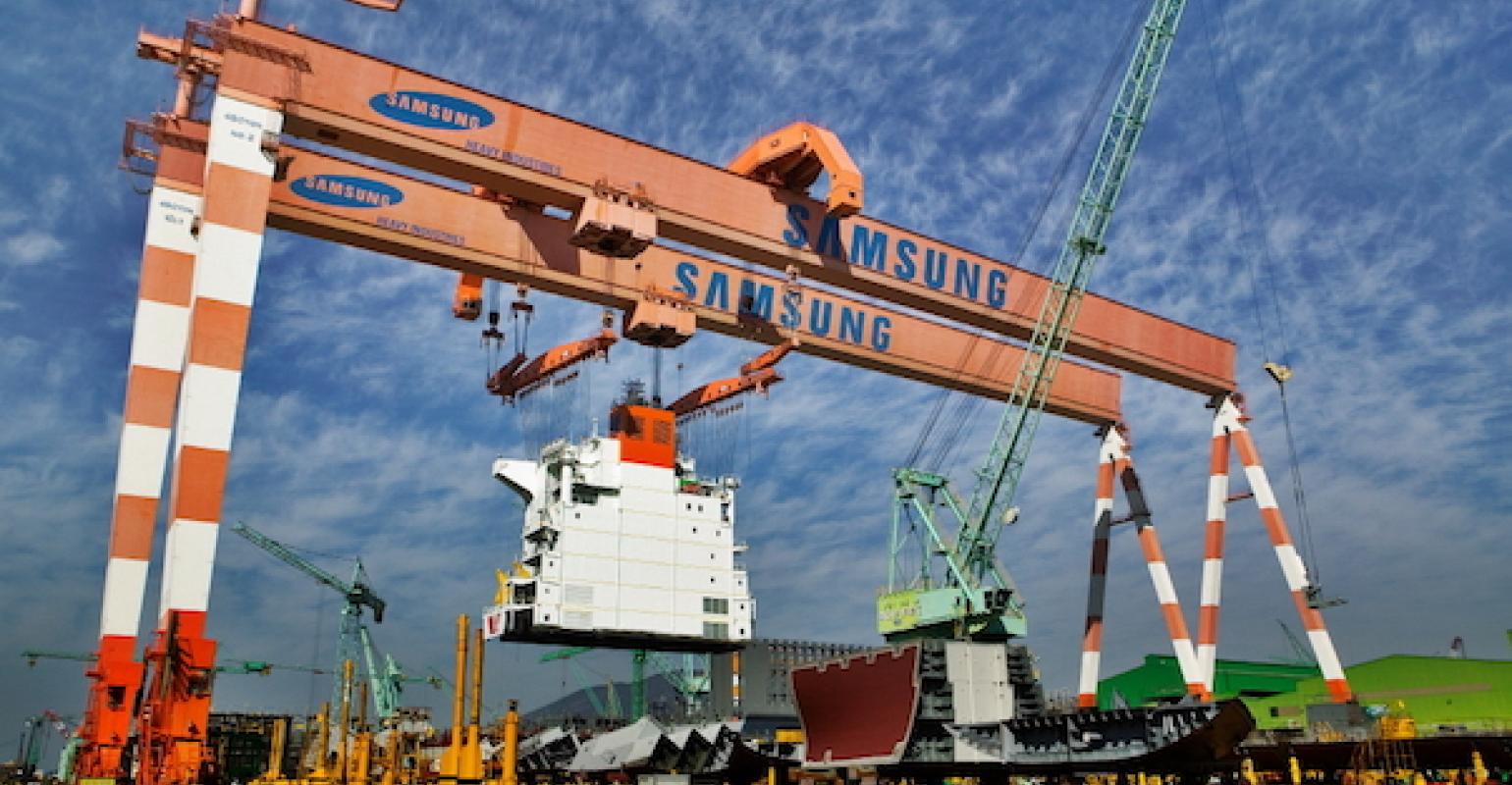Samsung Heavy Industries continues to reel under troubled finances and weak recovery scenarios reporting an operating loss of 506.8 billion won in its quarterly earnings for the January-March period.
Some of the losses were attributed by market observers to its heavy reliance on the once-promising offshore plant business and pandemic-induced cancellations that resulted in excess drillship inventory.
This year, Samsung Heavy also lost out in several landmark orders to Korea Shipbuilding & Offshore Engineering and Daewoo Shipbuilding & Marine Engineering.
Among the deals was a $758 million order from Brazil’s state-owned Petrobras to construct a floating crude oil production, loading, and storage facility.
To turn things around, Samsung Heavy plans to achieve a capital reduction by cutting the face value of its shares by 80 percent from 5,000 won to 1,000 won. The company also seeks to raise 1 trillion won by selling new shares.
The company’s stock price dipped from a peak of 7,780 won to 5,620 won, though it later recovered to the 6,000 won range in late May.
Last week, KB Securities lowered the target stock price for Samsung Heavy from 6,500 won to 5,000 won as the shipbuilder prolonged deficit orders throughout the quarter.
South Korea’s main shipbuilders are experiencing robust business brought by global trade recovery and increasing demand for advanced eco-friendly vessels. Market leader Hyundai Heavy's stock hit a high for the year of 79,300 won in the second quarter.
Meanwhile, Samsung Heavy had won an order worth 417 billion won to construct two liquefied natural gas carriers for a shipper in the Oceania region, aiming for delivery by July 2024.
According to officials, the upcoming models will be noted for several eco-friendly technologies, such as the air lubrication system Saver Air.
The company has so far achieved $5.4 billion in orders this year, comprising 59 percent of its order target total for the year.



 Washington Post Publisher Will Lewis Steps Down After Layoffs
Washington Post Publisher Will Lewis Steps Down After Layoffs  Missouri Judge Dismisses Lawsuit Challenging Starbucks’ Diversity and Inclusion Policies
Missouri Judge Dismisses Lawsuit Challenging Starbucks’ Diversity and Inclusion Policies  RBI Holds Repo Rate at 5.25% as India’s Growth Outlook Strengthens After U.S. Trade Deal
RBI Holds Repo Rate at 5.25% as India’s Growth Outlook Strengthens After U.S. Trade Deal  Bank of Japan Signals Readiness for Near-Term Rate Hike as Inflation Nears Target
Bank of Japan Signals Readiness for Near-Term Rate Hike as Inflation Nears Target  Global Markets Slide as AI, Crypto, and Precious Metals Face Heightened Volatility
Global Markets Slide as AI, Crypto, and Precious Metals Face Heightened Volatility  Fed Governor Lisa Cook Warns Inflation Risks Remain as Rates Stay Steady
Fed Governor Lisa Cook Warns Inflation Risks Remain as Rates Stay Steady  Dollar Steadies Ahead of ECB and BoE Decisions as Markets Turn Risk-Off
Dollar Steadies Ahead of ECB and BoE Decisions as Markets Turn Risk-Off  South Africa Eyes ECB Repo Lines as Inflation Eases and Rate Cuts Loom
South Africa Eyes ECB Repo Lines as Inflation Eases and Rate Cuts Loom  Once Upon a Farm Raises Nearly $198 Million in IPO, Valued at Over $724 Million
Once Upon a Farm Raises Nearly $198 Million in IPO, Valued at Over $724 Million  Sony Q3 Profit Jumps on Gaming and Image Sensors, Full-Year Outlook Raised
Sony Q3 Profit Jumps on Gaming and Image Sensors, Full-Year Outlook Raised  Global PC Makers Eye Chinese Memory Chip Suppliers Amid Ongoing Supply Crunch
Global PC Makers Eye Chinese Memory Chip Suppliers Amid Ongoing Supply Crunch  SoftBank Shares Slide After Arm Earnings Miss Fuels Tech Stock Sell-Off
SoftBank Shares Slide After Arm Earnings Miss Fuels Tech Stock Sell-Off  Asian Stocks Slip as Tech Rout Deepens, Japan Steadies Ahead of Election
Asian Stocks Slip as Tech Rout Deepens, Japan Steadies Ahead of Election  Singapore Budget 2026 Set for Fiscal Prudence as Growth Remains Resilient
Singapore Budget 2026 Set for Fiscal Prudence as Growth Remains Resilient  Trump Endorses Japan’s Sanae Takaichi Ahead of Crucial Election Amid Market and China Tensions
Trump Endorses Japan’s Sanae Takaichi Ahead of Crucial Election Amid Market and China Tensions  OpenAI Expands Enterprise AI Strategy With Major Hiring Push Ahead of New Business Offering
OpenAI Expands Enterprise AI Strategy With Major Hiring Push Ahead of New Business Offering  Nvidia, ByteDance, and the U.S.-China AI Chip Standoff Over H200 Exports
Nvidia, ByteDance, and the U.S.-China AI Chip Standoff Over H200 Exports 































